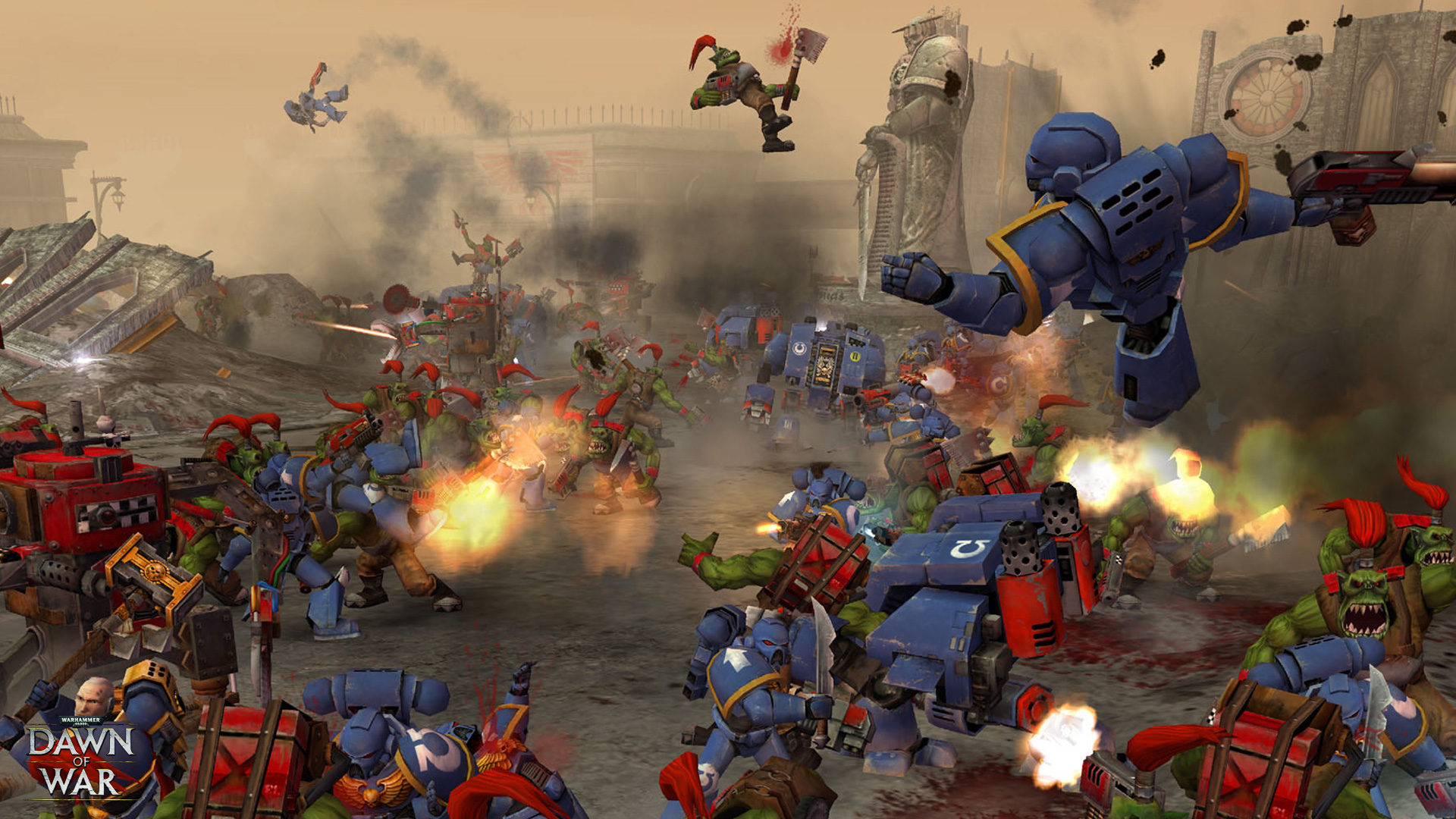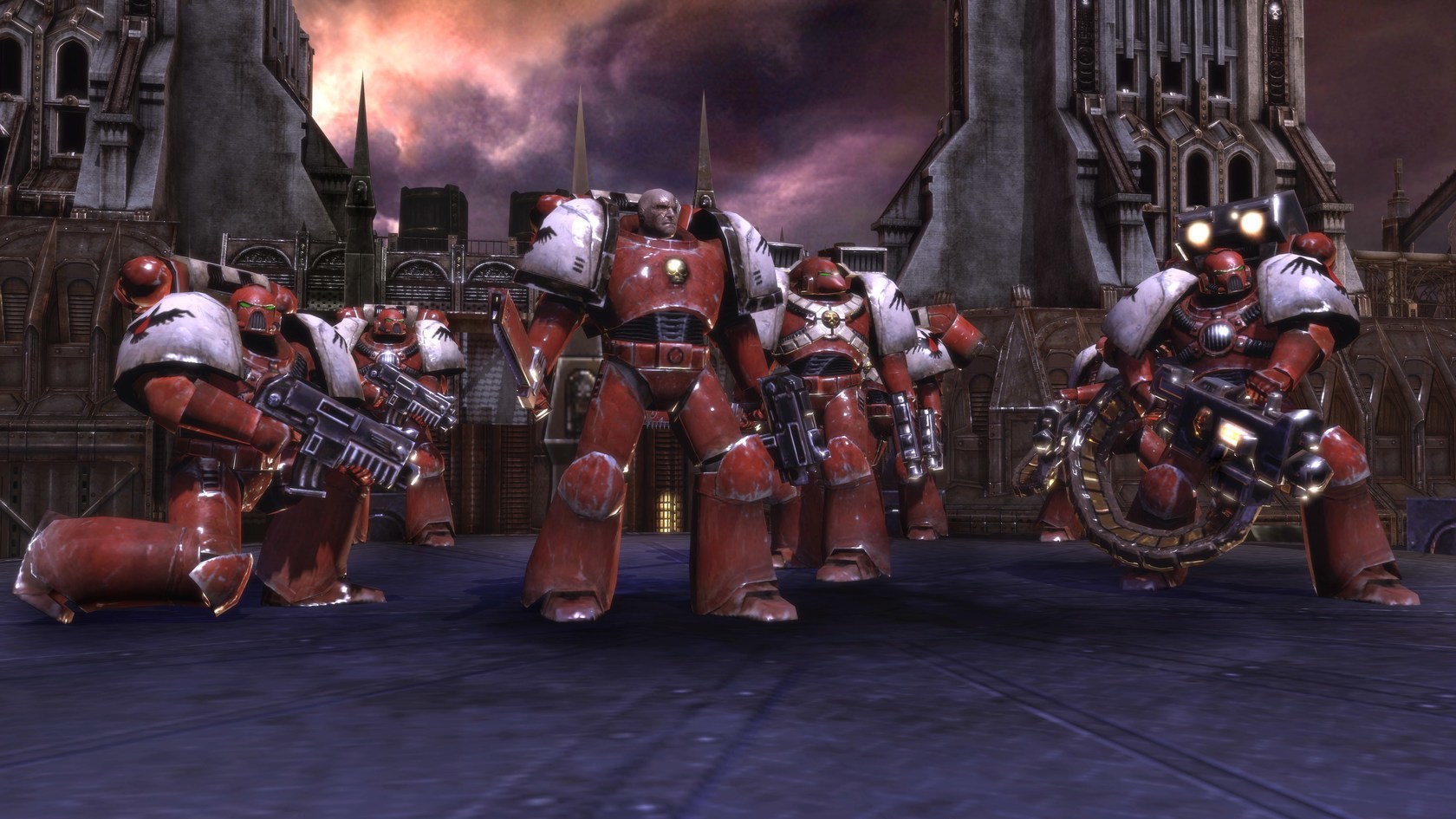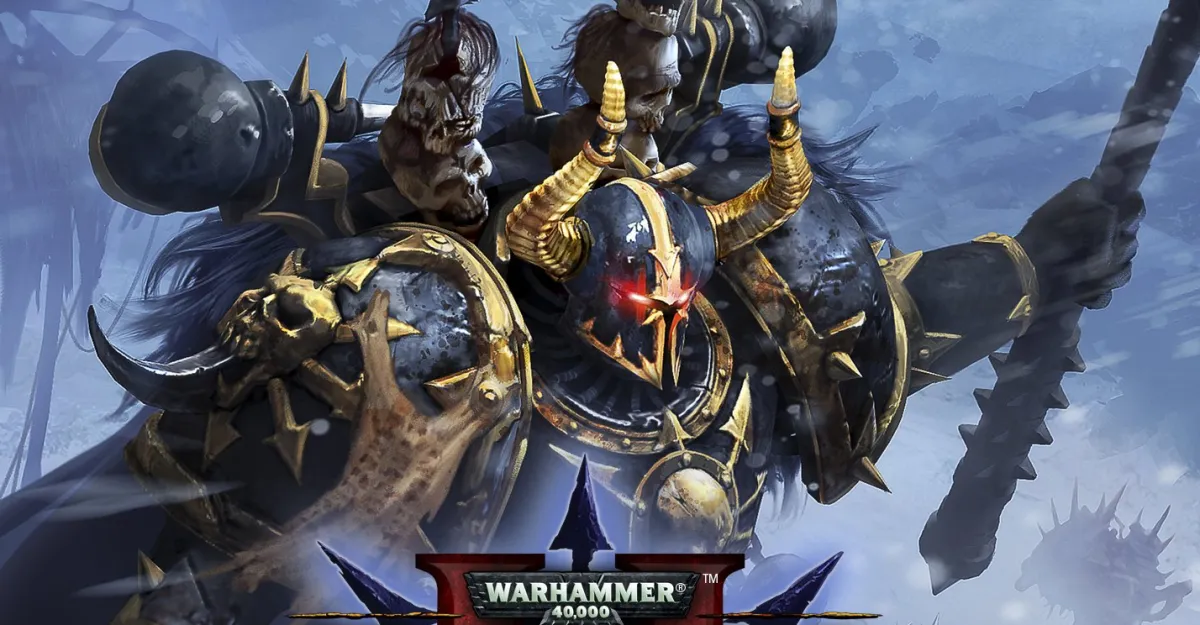The surprise Warhammer 40K show announcement from The Witcher star Henry Cavill and Amazon presented the Warhammer community with more questions than answers. Which beloved characters would come forth to protect or doom the Imperium of Man? And while Amazon has countless novels and tabletop games to get TV ideas from, I want them to shift their gaze toward video games — specifically, studio Relic Entertainment’s incredible Warhammer 40,000: Dawn of War real-time strategy games. While later iterations would move towards squad-based gameplay and MOBA-esque mechanics, Dawn of War and Dawn of War II remain household names in the history of strategy titles.
The first game spins a tale of deception across multiple factions, each with unique strengths and tools to level the battlefield. While the brutish Orks and the Eldar space elves need buckets of CGI or practical effects to make it to the screen, Henry Cavill has a different task ahead of him. His sturdy frame and capacity to step into the roles of near-godlike beings are a perfect fit for Space Marine armor. Captain Gabriel Angelos is, like most protagonists in Warhammer 40K, haunted by his past. His failure to save his homeworld Cyrene leaves him brittle and determined to root out Chaos forces.
Despite the approach of a deadly warp storm, Gabriel stays behind with his regiment of Blood Ravens on the planet Tartarus to investigate. He soon discovers the presence of the Maledictum, an ancient Chaos artifact that stores terrible power. It corrupts allies and empowers foes, leading Gabriel’s regiment to accidentally free a Daemon Prince who towers over them.

The ploy is then fully revealed — the entire planet was an altar, whose battlefields of blood powered the Chaos Marines’ gambit. Dawn of War’s narrative features plenty of memorable lines and tense exchanges between factions, making it a great source of quips and heavy one-liners. Even its loading screens offer tips like, “Pain is an illusion of the senses, despair an illusion of the mind.” Gabriel is unrelenting in his mission to eradicate Chaos, making him a solid pick for the planned Henry Cavill Warhammer 40K show.
The expansions to Warhammer 40K: Dawn of War and their new races could also serve as great additions to the show. While their appearances were light on the story front, the races’ novel units and buildings could keep the show from running out of steam. I can’t say no to necro-mummies and dark elves who wear blades for armor. The games didn’t cover their arcs as well as they could have, but novels have already laid the groundwork for them. Narrative arcs from novels like The Infinite and the Divine could give the show more material to feast on.
Warhammer 40K: Dawn of War II ups the ante with a focus on squad combat and tactics. Base-building is forgotten and the unit counts have shrunk, letting Space Marines showcase their true stopping power. This would lend itself admirably to a show where a handful of heroes share the limelight. The banter between in-game squad leaders further rounds out their stories, making for excellent content to borrow. Amidst bolter fire and chainsaw sword duels, your protagonist finds himself duking it out against Ork machines and psychic Eldar forces. But it’s the swarms of parasitic Tyranids that really sold the universe’s deplorable state to me.

Standing shoulder to shoulder with a friend as you face down hordes of insectoid monsters rushing at you makes for a deeply engaging experience. There are several situations in the franchise where overpowering odds force you to make a last stand, only for a new hero to drop in and even the odds. Dawn of War II has a particularly memorable comrade return that I won’t spoil here.
But seeing someone you believe to be dead drop from the sky in a mech is the stuff Warhammer 40K is known for. Characters also return to previous worlds across missions, making their environments even more recognizable over time. Watching these powerful scenes come to life on-screen would be a great time for Warhammer 40K lore buffs and newcomers alike.
Warhammer 40K’s worlds drown in power struggles both apparent and invisible. Politics often factors heavily into the fate of a planet and its people. Cunning villains and misguided anti-heroes blend subjects like imperialism and religion with tales of betrayals and false hopes. Warhammer 40K might not sound like a tea party, but for those who love nasty surprises and pyrrhic victories, few stories can contest its might. I can’t wait to see one of tabletop gaming’s most celebrated franchises come to life as a live-action show.






Published: Jan 14, 2023 01:00 pm